#Thomas Melville
Text
Wary Sailor Pt. 4 | Matthew Joy x fem!reader




summary: She isn't good for him, but she keeps coming back. What is a man like Matthew Joy meant to do??
warnings: smut, aggression, dubious consent, fingering, penetration, unprotected sex, trust issues lol.
word count: 2574k
Dream Sweet in Sea Major- Miracle Musical 🎶
Another shout out to @everandforeveryours for feeding me inspiration. 1 more part coming... maybe 2? I have an ending in mind for sure!
Matthew awoke with a soft gasp as he felt his body start to fall as he slept. He was still sitting against the wall but had slumped over and forced himself awake. His hands kneaded the straw mattress as he tried to gather his bearings. The whale oil lamp was turned down low so the room was dark and stuffy. Matthew felt sore and feverish after being thrown overboard. He couldn’t get sick, not now. It would be a death sentence to the whole crew.
Weakly, Matthew lowered himself down onto the mattress and covered himself with the wool blanket. His back spasmed as he did so and he gritted his teeth to keep from gasping in pain. His dark brown hair was plastered against his forehead and he looked more pale than usual. Even his freckles were pale, as if his coloring had been ironed flat. Closing his eyes again, Matthew tried to fall asleep. He returned to the dream he’d been having before with a peculiar quickness.
In his dream he could see Y/N lying on a rock, surrounded by waves. She was in her human-form and wearing a white dress like a little girl. Beyond her, Matthew spotted a sperm whale breaching the surface for air. Its blowhole sent a spray of water and grime into the air. The girl looked at the way over her shoulder. When the whale finally descended again, she turned and looked right at Matthew. Suddenly, he was there on the rock with her. She could see him and speak to him. Looking between his eyes for a moment, she took a breath and warned him.
Beware the white whale.
…
When he woke up again, he looked around the small cabin in confusion. Something else had woken him up this time. Through his squinted eyes he could see only light and shadows, moving with the motion of the ship. He heard the door open, the latch having not been properly secured. It fell open slightly and Matthew could just see into the corridor outside the Captain’s quarters. He forced himself to stand and staggered across the floor to the crude door. As his hand found the handle and started to pull it closed, a hand helped him close it.
He was too tired to react when he turned his head, seeing her standing there beside him, her hand helping him close the door. She was once again in her human-form, her pale legs iridescent with droplets of water. She wore a nicer dress than she had the first time he’d seen her. It was still white but it had long sleeves and ended at her knees. Her neckline plunged deep enough to allow Matthew a view of her glistening sternum. Her hair was braided down her back in a long braid.
“How did you get in here?” Matthew could only think to ask. His eyes traveled up her body despite his best efforts. Before she responded, she closed and latched the door. When she faced him, her eyes were downcast as if she were embarrassed. Matthew took a deep breath and skipped to his next question, one that seemed more relevant,
“Why are you here?” He asked and watched as she removed her hand from his and turned away. As she moved away, he felt himself reach for her. His hand gripped her upper arm and pulled her back to face him. Her green eyes rose to meet his gaze and they were wet with old tears. His fingers tightened around the fleshy part of her arm, seeming to forget that she wasn’t human like he was and couldn’t feel the same pain.
“I said, why are you here Y/N?” His voice was harsher as he spoke through his teeth, “you made it clear the last time we spoke that we couldn’t be together, and yet, here you are… again.” As he said the last sentence, his eyes softened. Despite his best attempts, he loved the girl in front of him, her contradictions and all.
“I made a mistake… I’m making one now too,” her voice was soft and distracted. She wasn’t making much sense. His grip loosened and she exhaled slowly, her eyes turning fully to hold his gaze.
“I hope you can understand how much I love you and why that means we can’t be together. Can you see I did what I did because I love you? I’m trying to keep you alive…”
“Then why do you keep coming back?” He looked her up and down, his heart racing as she licked her lips.
“I don’t know.” She answered his question honestly and looked between his eyes. Matthew sighed and looked up at the ceiling. He pinched the bridge of his nose and tucked his other hand across his bare chest. His shoulders slumped slightly and his stomach contracted after each breath. His body was sore but he still managed to pull the girl violently to him and kiss her. She was weak in his hold as he held her up on the balls of her feet. His hands held her arms down at her side but it’s not like she was trying to get away.
He was kissing her so hard that her head was forced back against the wall behind her. Their breathing became heavy as they kissed, teeth pulling at lips and tongues. Pausing for only a moment, Matthew ripped her dress from her body. The fabric split down her chest and slipped down to her feet.
“Didn’t you know, love? It’s bad luck for a woman to be clothed on a ship,” Matthew went back to kissing her, hauling her away from the wall in his sore arms. He hissed against her lips when he tossed her on the small bunk.
“Matthew, you’re hurt…” she sat up on her elbows, her brow furrowed.
“It’s nothing. Just bruising,” Matthew explained in a whisper and leaned over her, his wrists supporting his weight on the mattress. His kiss was slower and softer now that she was on his bed, lying below him. Her hands tenderly explored the muscles on his chest and felt as his muscles contracted below each movement of her finger.
“God, look at you,” Matthew groaned against her cheek. His hands took her waist and situated her body where he wanted it on the bed. His arm brushed against her bare breast as he moved his hands back to her arms. Matthew pinned her hands above her head against the wreath of her dark hair.
“I need you… I’d give anything for you,” his breath was hot and heavy against her neck. He kissed her skin, making her peach fuzz stand on end where he kissed.
“You already have me, sailor.”
As she said it, Matthew pulled his face back and looked into her pale green eyes. His chest rose and fell so close above her breasts that she could feel the heat from his body.
“No, not yet but I will.” He responded seriously and let his eyes wander down her body to her knees. With one of his hands, Matthew aggressively spread the girl’s legs and wrapped them around his hips. He’d already had her before but it felt new again as he pressed his erection against her wet cunt. Gasping softly, she pushed against him and moved her hips in a circle. Matthew took his hand and forced two fingers into the girl’s open mouth. She sucked them gently as he kept holding her down.
“There, that’s it, love.”
Then, removing his fingers from her mouth, Matthew penetrated her with his middle and pointer fingers. He used his thumb to rub her clit, his pressure hard and unforgiving. The girl below him whimpered as he worked her walls into a stretch. The sensation of her natural lubricant on his fingers made his erection even more painful as it strained against his pants. Once he had worked her up enough where she was red in the face and panting, he removed his fingers and sucked them clean. In the next second, Matthew pulled down his pants and teased himself on her entrance.
“God, just put it in already!” She whimpered before Matthew clapped his hand across her mouth, silencing her.
“Be quiet, love.” His dark eyelashes fluttered when he finally pushed inside of her. Somehow it was even better than their first time. Matthew hissed loudly as he completely filled her up, hitting the base of her uterus before slowly pulling out again. His back was already spasming from the effort and he tried to ignore it as he thrusted a second time. Sensing that he was losing strength, she pushed him off and forced him back down in her old place.
“You can still have me, sailor, but perhaps in another way?” She suggested with a shy smile. Still smiling with lust, Matthew smirked and caught on to her meaning.
“Show me, love,” he nodded and held both of her fleshy hips as she rose on her knees, finding his cock with one of her hands. Holding it straight, the girl lowered herself onto it and nearly gasped out loud. Matthew shushed her kindly and helped guide her down, supporting her so she could go slow.
“Damn, it feels so fucking good.” Matthew threw his head back, his Adam's apple poking up as he swallowed. He quickly raised it again so he could watch the girl begin to move with more flexibility. She twisted her hips and moved back and forth, working quiet moans from the both of them. She covered her own mouth as she kept up her pace on his cock. She could feel him leak around her, making the base of his cock wet with their sweat and precum.
She supported herself by pushing one hand against one of his pectoral muscles. Matthew offered her additional support by moving one of his hands to her elbow. Her eyes screamed out in thanks as she changed pace, snapping her hips down and bouncing up and down on her knees.
“There you go, love. You know just what to do, don’t you?” He gave her a soft laugh and wrapped her hair around his hand, holding it away from her back. Using her hair, he pulled her down to his lips and rubbed his nose against her’s.
“Do you know how much I love you?” He asked her between their whines. When she didn’t respond, Matthew kissed her. He breathed in through his nose and she nearly melted below his mouth as he bit her bottom lip.
“I don’t know you at all, and yet, I love you more than anything,” he told her when he released her fat lip. Her eyes poured into his as she sped up her hips. Matthew began to thrust up into her, losing control of his body. She was so wet around him that he could hear the movement of his cock inside her, through layers of muscle and bone.
“Ride me until the end, love.”
The Siren nodded and arched her back. Matthew grabbed her hand and watched as she worked herself up to a blinding climax. His groans slipped into quiet moans and exhales as she squeezed around him, prompting his own orgasm. They both stifled their shouts of pleasure and stumbled through their climaxes, swapping cum. Finally, she leaned forward again and waited for him to speak. Matthew brushed her hair away from her face and pulled her to his chest. Pulling out as he did, she collapsed against his chest. She could feel every muscle in his chest as she rested her cheek on his body. His heart was racing, the same as hers.
She rolled over and allowed her head to rest upon his bicep. Matthew rolled his head to the side and watched her. Her lips were parted as she caught her breath. They were both naked save the short breeches caught between Matthew’s legs. Sweat sparkled on the girl’s body, catching his attention. Though he was tired, Matthew propped himself up beside her and lowered his face to her stomach, licking the drops of sweat from her skin. She tasted like salt, both from her body and from the sea. His nose trailed the curvature of muscle leading from her sternum to her navel. The Siren’s hand cupped the back of his freckled neck and ran up into his dark brown hair. She tugged affectionately and petted him like a dog, encouraging a smile from the man above her.
“I don’t think I have ever loved the ocean more,” Matthew whispered between long drawn out licks. “For having made you was the greatest gift of all.”
“Quiet now, sailor. Come here and kiss me,” the girl smiled and giggled as Matthew did as she requested, pressing his lips against hers.
…
“I should leave now, before dawn,” Y/N’s voice broke the calm silence between them. Matthew turned his face to process her sentence. With a disappointed nod, he sat up in the bunk and buttoned his pants.
“I’ll walk you to the railing.”
By then, his clothes had dried where he laid them the day before. Having ripped the dress from her body, the Siren was naked, so Matthew handed her his shirt and helped her tie the front laces.
“It’s bad luck for a woman to wear clothes on a ship,” Y/N laughed softly at Matthew who shrugged his head to the side.
“That’s true… but it’s only for a moment,” Matthew pursed his lips in faux-thought. Hand in hand, Matthew led her up to the deck of the Essex. Dawn hadn’t breached the horizon but the skin had brightened enough to see a few feet in front of them. The men would be up and working soon, recovering from the storm. She started to mount the railing when Matthew stopped her.
“Wait, before you go… I had the oddest dream about you and… and a white whale. It’s the same whale the Captain has been chasing, the one that even Owen is beginning to obsess over. They both see it as a trial of some kind. Anyway, you told me to ‘beware.’ Do you know such a whale?”
She furrowed her brow and nodded worriedly.
“Yes, I do. Matthew, it’s a red herring. Whatever you do, don’t let these men try to best the beast. You will never win against nature. You can never win against something like me… something born of the sea-”
Voices rose from below the deck and Matthew checked over his shoulder.
“Promise me you won’t join them in this madness,” her hand grasped his and squeezed painfully tight.
“I have no control over them-”
“Then make them listen. You must promise, promise that you’ll try.”
Matthew furrowed his dark eyebrows and took a sharp breath.
“I promise…”
“Joy!”
Matthew turned. She was gone.
“What the hell are you doing above deck?” One of the deckhands greeted him with a smile and a gentle pat on the back which was still bright purple with bruising.
“The storm has passed,” Matthew could only think to say and gestured to the calmer sea.
“For now, I heard Owen saying the Captain wants to chase it, he thinks the whale is following it too.”
“Where is the Captain?” Matthew’s voice darkened.
“In his quarters, sir.”
“Right, watch the horizon. I’ll be back.”
....
End of Pt. 4!
#cillian murphy#fanfiction#cillian x y/n#smut#cillian fanfic#cillian x reader#fem!reader#cillian fluff#peaky blinders#cillian murphy fanfiction#cillian murphy characters#in the heart of the sea#tom holland#chris hemsworth#multi chap fic#piratecore#sirens#siren aesthetic#sirencore#moby dick#herman melville#whaling#historical romance#romance#forbidden love#matthew joy#thomas shelby#sailor and siren#cillian x fem!reader#oppenheimer
75 notes
·
View notes
Text
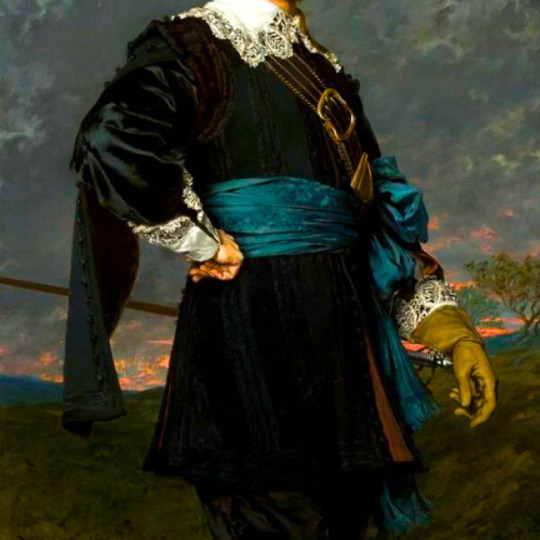
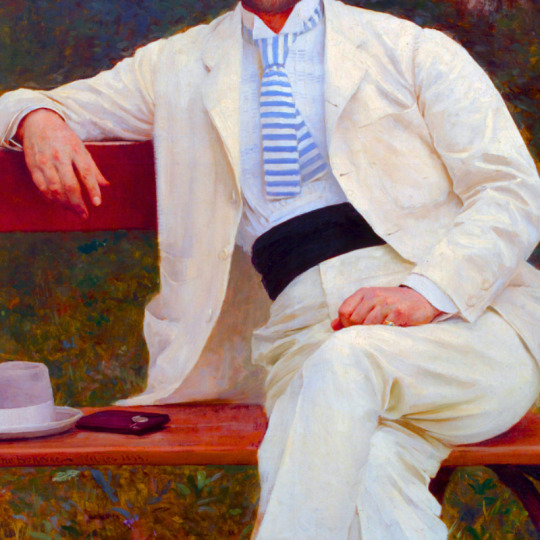
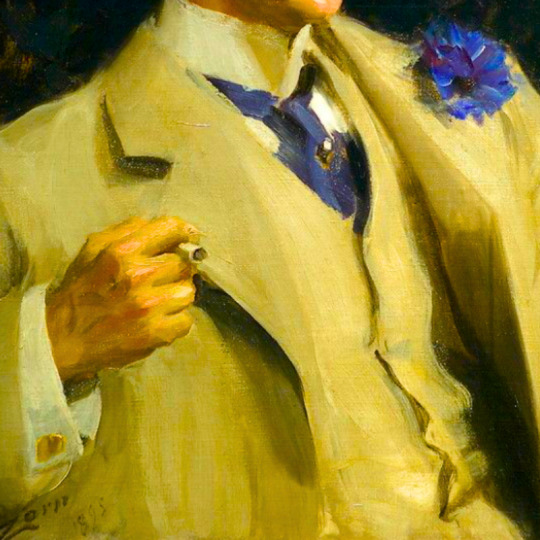
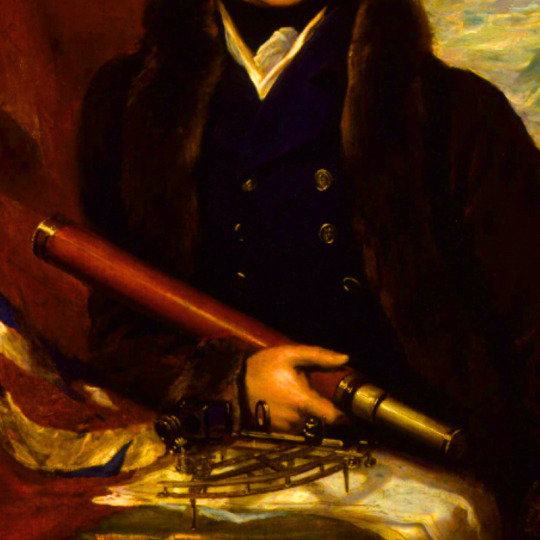
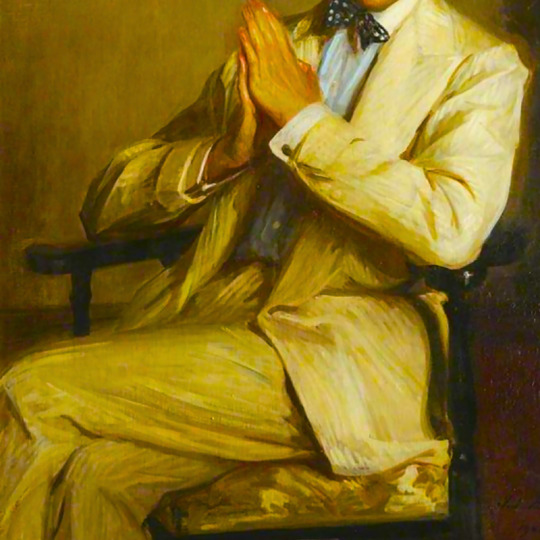
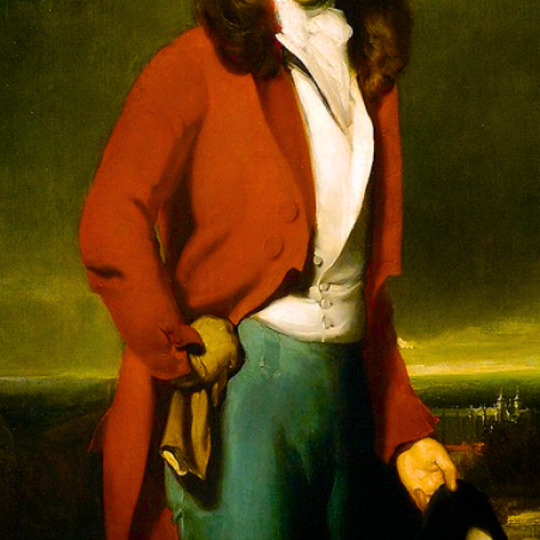
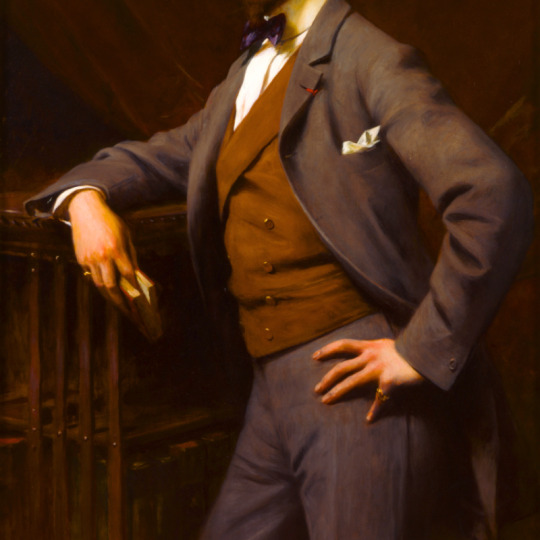
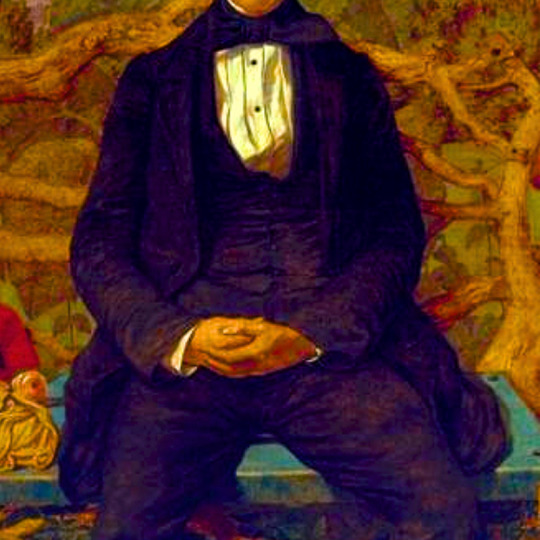
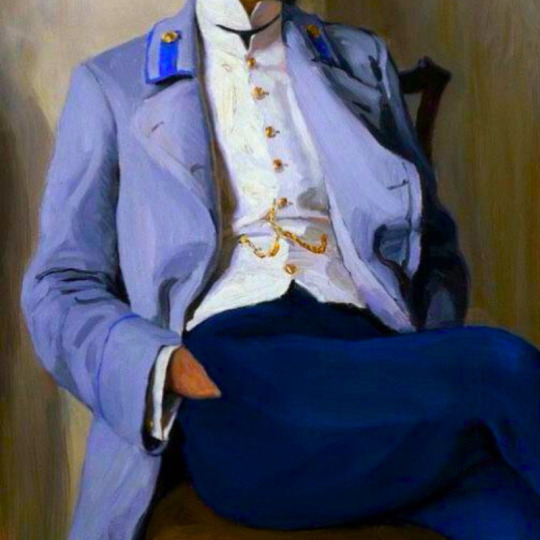
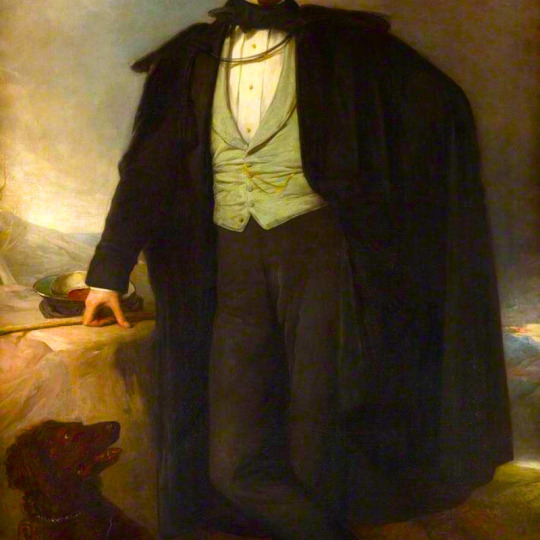
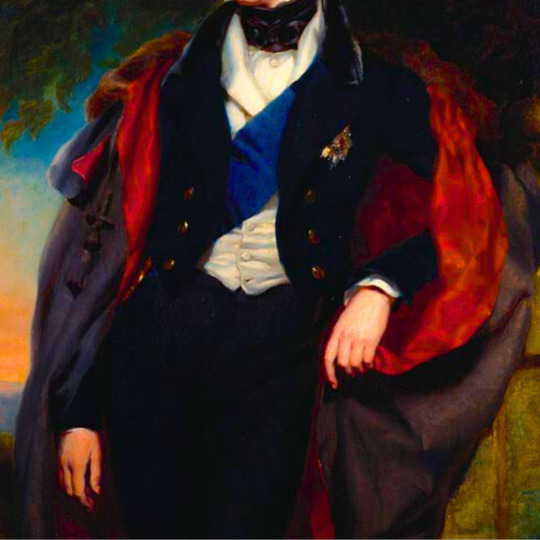

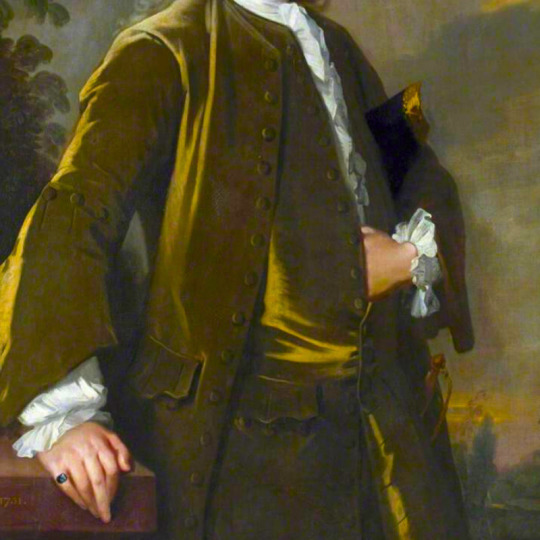
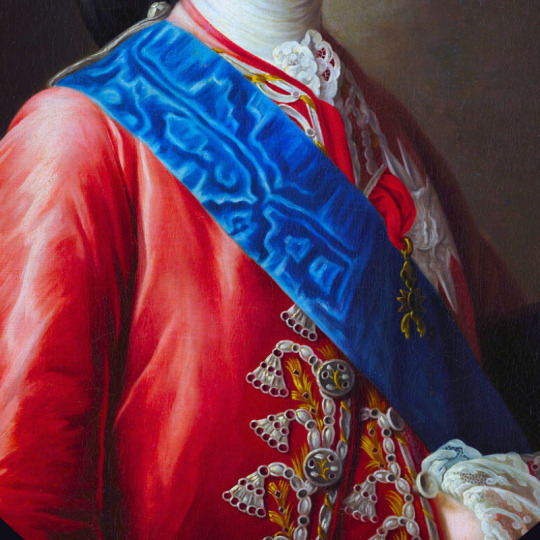


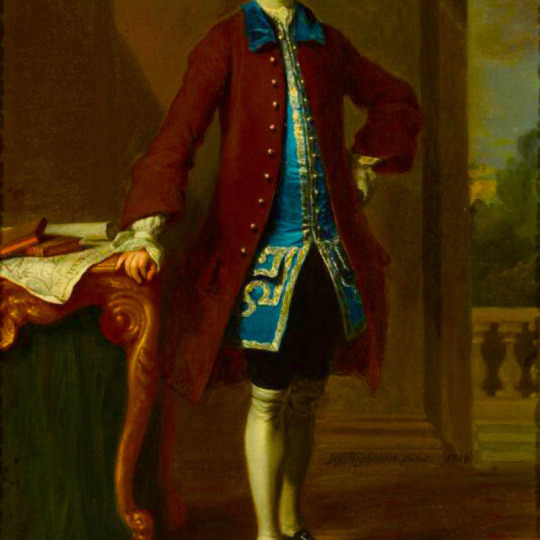
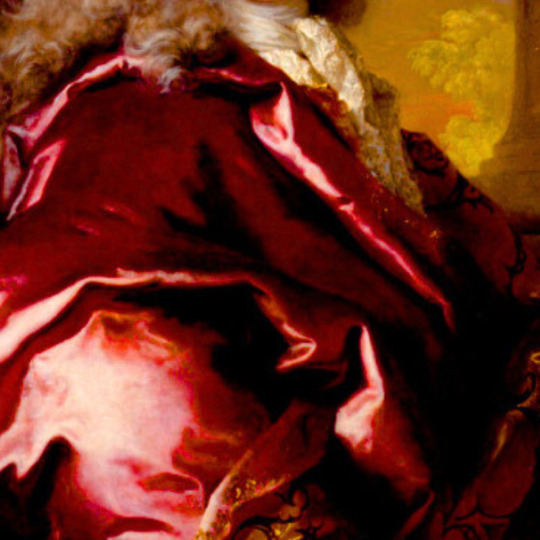

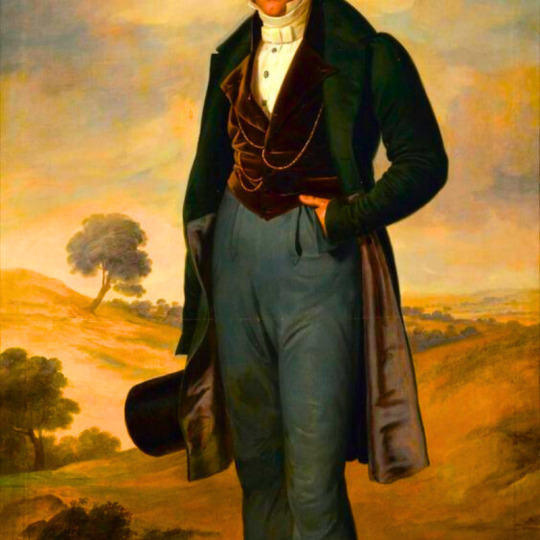
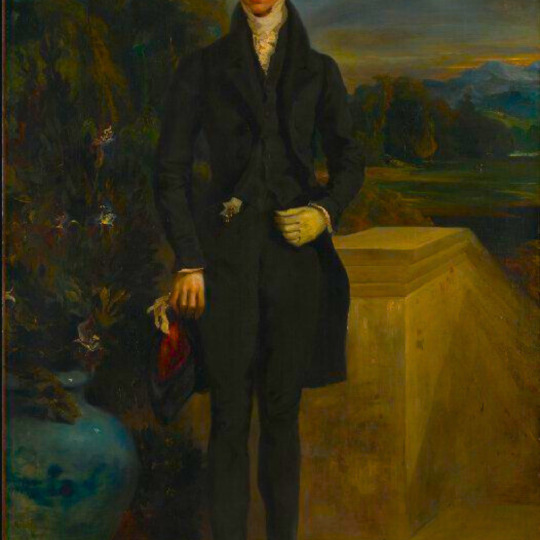

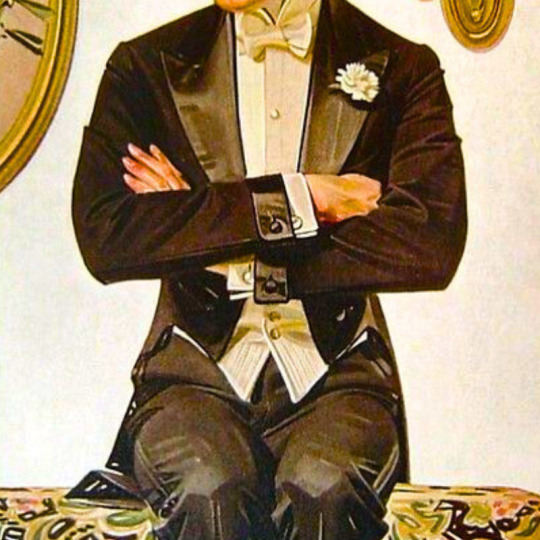

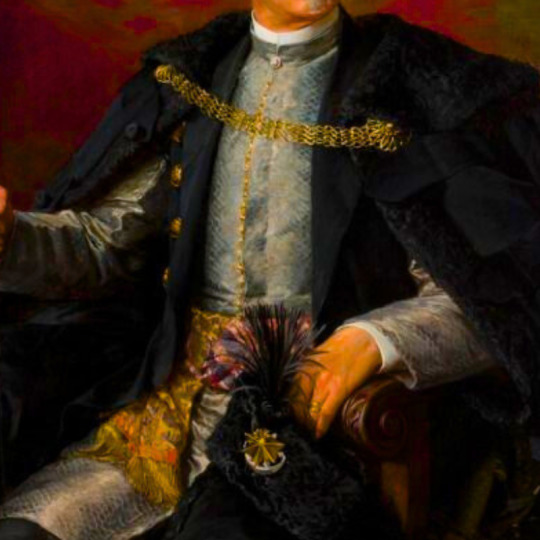
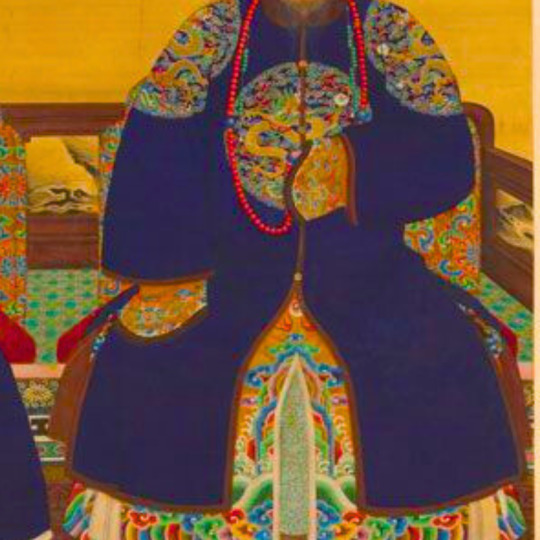
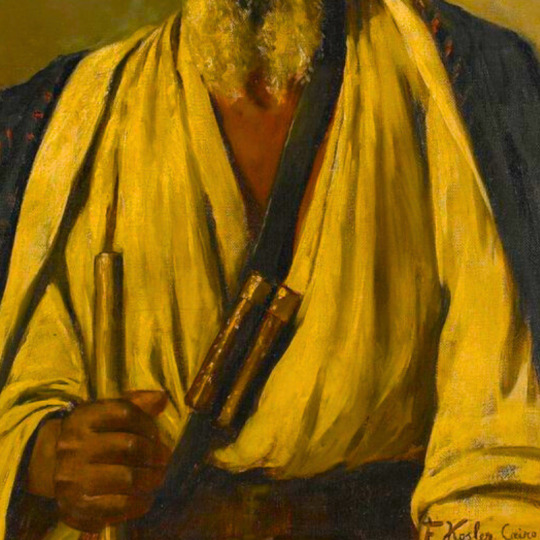
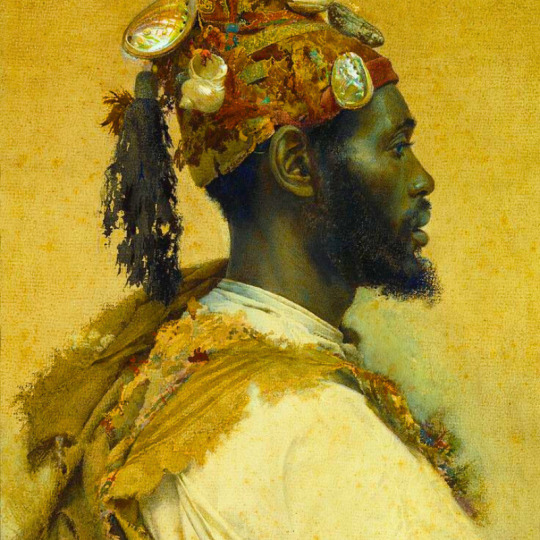
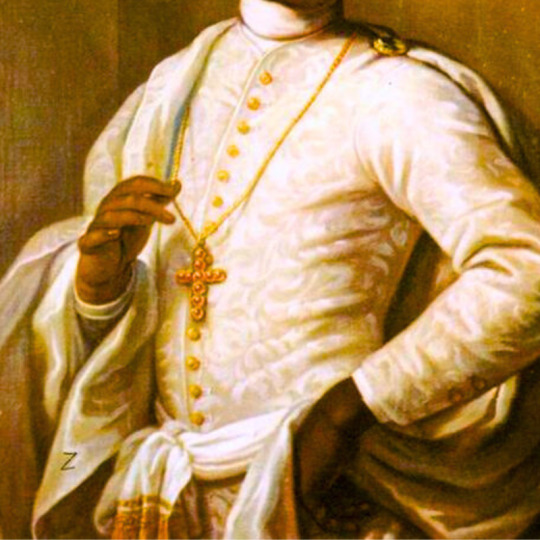
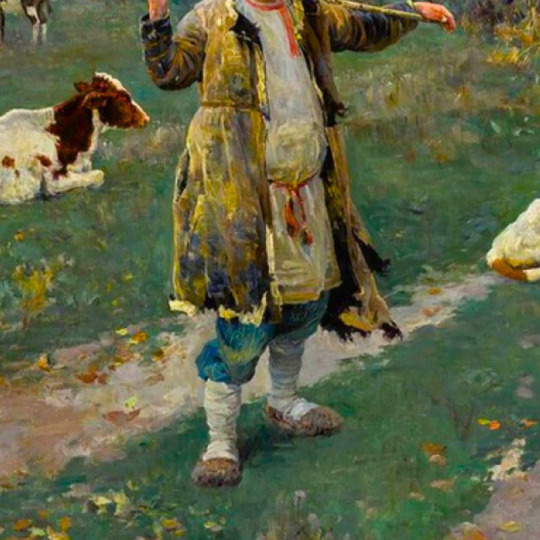
men's fashion + art
#stanislaw czachorski by wladyslaw czachorski#gustav pongratz by vlaho bukovac#william b ogden by anders zorn#sir william edward parry by sammuel drummond#harry melvill by jacques-emile blanche#arthur atherley as an etonian by thomas lawrence#james hazen hyde by theobald chartran#portrait of a young man by richard dadd#gorchakov by bogdanov-belsky#anthony ashley-cooper by francis grant#prince george by john lucas#unknown english nobleman by unknown artist#edward phelips iv by bartholomew dandridge#portrait of count of provence by francois-hubert drouais#portrait of gerolamo giustiniani by unknown#portrait of a man with florence in the background by louis gauffier#portrait of daniel sanxay by joseph highmore#portrait of marc-conrad buisson#portrait of amaro guedes pinto by antonio manuel da fronseca#retrato de jose maria benitez bragana by rafael tegeo#louis-auguste schwiter by eugene delacroix#infante charles of spain by juan pantoja de la cruz#white tie by j.c. leyendecker#portrait of ludwik wodzicki by henryk siemiradzki#portrait of jan dzierzyslaw tarnowski by kazimierz pochwalski#scroll of yinti prince xun and his wife#portrait of the hong merchant mowqua by unknown#portrait of an egyptian by franz xaver kosler#moroccan portraits by josep tapiro i baro#portrait of a young black man italy by alessandro longhi
374 notes
·
View notes
Text
My Classics Lit Gay Ships:
Raskolnikov x Razumikhin - Crime And Punishment
Stavrogin x Verkhovensky - Demons
Kirillov x Shatov - Demons
Ibarra x Elias - Noli Me Tangere
Juanito Pelaez x Potencio Penitente - El Filibusterismo
Narrator x Robert De Saint-Loup - In Search Of Lost Time
Ishmael x Queequeg - Moby Dick
Leopold Bloom x Stephen Daedalus - Ulysses
Durtal x Des Hermies - La Bas
Mason x Dixon - Mason And Dixon
OMG. I have head cannons for each of these pairings and I’ll post them when I feel like it.
I was sad earlier this day but then I remembered that books make me happy, especially ones with vaguely homoerotic interactions between the male characters.
#fyodor dostoevsky#dostoevsky#demons#crime and punishment#jose rizal#noli me tangere#el filibusterismo#marcel proust#joris karl huysmans#herman melville#james joyce#thomas pynchon#raskolnikov#razumikhin#stavrogin verkhovensky#elibarra#penilaez#leopold bloom#ulysses#moby dick#la bas#mason and dixon#literature#classics
75 notes
·
View notes
Text
Books for political formation
Books that have left an indelible mark on my understanding of politics some way. My political development is unfinished, so this list is unfinished - I'm always open to suggestions
Capital Vol. 1, Karl Marx - unmasks the inherently exploitative social relations embedded within capitalism, critiques capitalism as ineffective/self-destructive (not just immoral)
Capital and Ideology, Thomas Piketty - there is no such thing as a "natural" social order, examines how inequality regimes have emerged and been justified across the world throughout the past 1000 years of history
Nixon Agonistes, Garry Wills - captures a cross-section of American politics over a short period, probing insights into the psychology driving political affinities, documents the evolution of the word "liberal" in American political discourse
What Are We Doing Here?, Marilynne Robinson - provides a constructive, anti-Hobbesian view of society
Poverty, by America, Matthew Desmond - shows the extent to which poverty in America is a policy choice, harm reduction is possible without revolution
The Code of Capital, Katharina Pistor - a cursory overview of the legal strategies to insulate capital from any competing legal claims
Eichmann in Jerusalem, Hannah Arendt - laziness and insistence on self-exoneration is often the psychological engine behind human wickedness and injustice over and above malice
Illness as Metaphor / AIDS and Its Metaphors, Susan Sontag - shows how deeply ingrained prejudicial views of disability is within our collective language and psyche
Blood Meridian, or, the Evening Redness in the West, Cormac McCarthy - violence has never been excised from politics, the invisibility of violence to the bourgeois is an illusion
Lysistrata, Aristophanes - unmasks the nature of gender politics despite its operation behind closed doors, imagines a project of mass organizing along gender lines
Civilization and Its Discontents, Sigmund Freud - civility is unfortunately a tenuous prospect
Heroes of the Fourth Turning, Will Arbery - excoriates conservative psychological pathologies
Martin Luther King Jr
A Gift of Love - justice is love in public
Letter From a Birmingham Jail - there are contexts where civil disobedience is mandatory for the Christian, solidarity with the marginalized is always mandatory
The Waste Land, T.S. Eliot - progress is not inevitable
William Faulkner
Absalom, Absalom! - racism is an inexorable part of American capitalism, imperialism cannot be stopped until we are able to free ourselves of our disingenuous national myths
The Sound and the Fury - nostalgia makes you an idiot, unable to understand your present or to predict your future
Herman Melville
Billy Budd, Sailor - history is unavoidably malleable
Moby-Dick - a true-believer demagogue is worse than a cynically disingenuous one, democracy can be an ineffective antidote to a tyrant
Franz Kafka
The Trial - the very procedures instilled to protect (or at least mitigate) injustice can also exacerbate it
The Metamorphosis - modernity interferes with our ability to see and relate to others as human, liberalism's self-advocating and individualistic ethic destroys us from the inside out because it forecloses our ability to recognize this
John Milton
Areopagitica - freedom of speech is as much about the individual's freedom to render judgment on speech as it is about the speakers ability to speak, the problem with censorship is the top-down nature of it, not in the governed people's discernment of quality or value
Paradise Lost - similar to Birmingham Jail, the character of Abdiel represents righteous opposition to Earthly principalities
The Autobiography of Malcolm X - the psychological, spiritual, emotional toll that being black in America takes on a person, black empowerment is a necessary step towards black liberation
Ursula LeGuin
The Lathe of Heaven - structural reform can only be undertaken democratically, no change is without trade-offs so changes must be broadly accepted and supported by the populace who will inevitably bear the unforeseen burden that results
The Ones Who Walk Away From the Omelas - shows the extent to which our brains are broken by imperialistic thinking, exploitation is a necessary feature of the worlds we are capable of imagining
#karl marx#thomas piketty#garry wills#marilynne robinson#matthew desmond#katharina pistor#hannah arendt#susan sontag#cormac mccarthy#aristophanes#will arbery#martin luther king jr#t.s. eliot#william faulkner#herman melville#virginia woolf#franz kafka#john milton#malcolm x#ursula k. le guin
5 notes
·
View notes
Note
The FAILING New York Times recently asked their columnists to select “the one piece of culture that, to them, best explains America." The majority of responses are what you'd expect. (Ted fucking Lasso?) Personally, I'm a Melville's The Confidence-Man man, but I'm curious to hear your response.
I mean, it's probably that James O'Keefe video I just referenced. But seriously, folks...it's got to be "Self-Reliance." Pretty much everything good and bad flows out of this, including unembarrassed citations of TV ephemera from would-be literati and other cultural elites:
Whoso would be a man must be a nonconformist. He who would gather immortal palms must not be hindered by the name of goodness, but must explore if it be goodness. Nothing is at last sacred but the integrity of your own mind. Absolve you to yourself, and you shall have the suffrage of the world. I remember an answer which when quite young I was prompted to make to a valued adviser, who was wont to importune me with the dear old doctrines of the church. On my saying, What have I to do with the sacredness of traditions, if I live wholly from within? my friend suggested,—“But these impulses may be from below, not from above.” I replied, “They do not seem to me to be such; but if I am the Devil's child, I will live then from the Devil.” No law can be sacred to me but that of my nature. Good and bad are but names very readily transferable to that or this; the only right is what is after my constitution, the only wrong what is against it.
I didn't love The Confidence-Man, found it claustrophobic and cynical, the kind of angry old man cynicism that's kin to sentimentality, as you also find in Twain or Vonnegut, whom I also don't love. I prefer Melville when he's sublime or when he's perverse or when he's elegiac. If I were going to pick a novel, it might be The Scarlet Letter, which contains most of the national character except the race stuff, and explains the entirety of the cultural logic—even re: the race stuff—by which Emerson's antinomianism doesn't spin off into total madness. Just for fun, here's the opening paragraph, in the same vein, of Harold Bloom's Introduction to his Modern Critical Views volume on Pynchon:
We all carry about us our personal catalog of the experiences that matters most—our own versions of what they used to call the Sublime. So far as aesthetic experience in twentieth-century America is concerned, I myself have a short list for the American Sublime: the war that concludes the Marx Brothers’ Duck Soup; Faulkner’s As I Lay Dying; Wallace Stevens’s “The Auroras of Autumn”; nearly all of Hart Crane; Charlie Parker playing “Parker’s Mood” and “I Remember You”; Bud Powell performing “Un Poco Loco”; Nathanael West’s Miss Lonelyhearts; and most recently, the story of Byron the light bulb in Pynchon’s Gravity’s Rainbow.
#american literature#american culture#ralph waldo emerson#nathaniel hawthorne#herman melville#harold bloom#thomas pynchon
3 notes
·
View notes
Text
Louis Ferron (1942-2005)
Mijn volgende boek(je) is “De gehuurde hand”, een novelle die Louis Ferron schreef in 1994 t.g.v. het vijftigjarige jubileum van uitgeverij De Bezige Bij. Het is Ferrons ode aan de Franse film noir, aan acteurs als Jean Gabin en Alain Delon, maar bovenal aan de grootmeester van het genre, de regisseur Jean-Pierre Melville (foto: Louis Ferron in 1981 door Hans van…

View On WordPress
#Agaath de Vries#Alain Delon#Friedrich Nietzsche#Henri Boot#James Baldwin#jean gabin#Jean-Pierre Melville#Lilian Blom#Lizzy Sara May#Louis Ferron#Louis-Ferdinand Céline#Marianne Schade van Westrum#Mischa Proper#Oscar Timmers#Sigmund Freud#Thomas Bernhard#Vladimir Nabokov
0 notes
Text
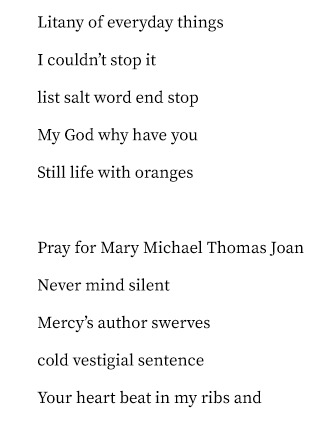
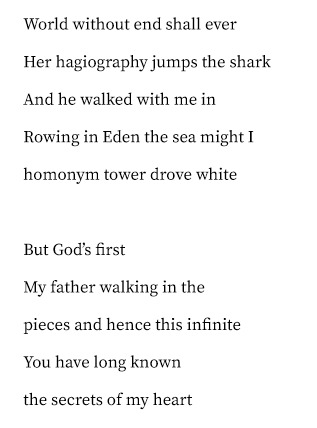
from litanies
#poetry#poets on tumblr#spilled ink#herman melville#thomas more#image description in alt#wrote these for a susan howe class and actually ended up liking them lol#trying to post more of my original work on here and thought these would be fun#lots of intertext going on in here i dont want people thinking i actually came up w stuff like you have long known the secrets of my heart#i like to think im a good writer but im not robert bolt good#or melville for that matter#my favorite original line in this is 'her hagiography jumps the shark' idk i just thought it was funny#literature#love#***
1 note
·
View note
Text
Imagine that a century or two from now, the eastern half of the United States is conquered by the Canadian Empire, its intelligentsia deported, its land colonized by Canadian immigrants, and its remaining people mostly gradually absorbed into a Neo-Canadian identity. The West reorganizes, developing a new political and cultural center, and comes to regard itself as the "true" United States, with the remnant culture of the East (by now much changed by Canadian rule) as representing an unchanged tradition stretching back to the time of George Washington. The holdout western half is subsequently conquered by the Reformed Mexican Empire, and while most of the population remains in situ, its elite is taken to Mexico City. There, for three or four generations, they do their best to maintain their distinct American identity, focusing on the American "civil religion," the distinctive political ideals and cultural features that mark them out as Americans, and come up with a new way of interpreting their history that allows America to be a perennial idea, something not directly physically tied to the territory of the United States, which no longer exists. They compose a body of historical works based on Washington Irving's rather fabulistic approach to early American history, the half-remembered popular versions of the stories of Columbus and the Pilgrims, the First Thanksgiving, even the Revolutionary War. They don't have access to the original texts anymore--let's say this is all taking place in a post-Collapse North America where long-range travel and communication is difficult and a lot of history has been lost--but they do their best. They append to these books, or include in their text, of history a copy of the Constitution, big chunks of the United States Code, and Robert's Rules of Order.
Subsequently, the Empire of Gran Columbia invades, conquers southern and central Mexico, and its Emperor lets the captive Americans go home. They return north, mostly to California, find that the version of American history and civics that is remembered there isn't the same as the version they have (not that the Californian one is correct--the Mexican Empire has suppressed English-language education and high culture in its Aztlani provinces), and set about reforming and reorganizing the Western States (as they're now called) to be more in line with the forms they brought back from the exile. In the meantime, other bits of important literature start being kept in libraries next to copies of the received histories: some bits of early American literature, like Hawthorne, the Song of Hiawatha, some highly abridged Herman Melville, Thomas Paine--heck, even some John Locke, and quotes or fragments from Shakespeare. Some traditionalists now argue the capital of the United States has always been located in San Francisco, and that Washington, D.C. only because the capital later, under the influence of Eastern heretics.
In the following centuries, the Western States retain their independence for a time, but eventually become a secondary battleground for a lot of other empires--the Mexicans, the Canadians, the Pan-Pacific Federation, and so forth. American culture remains distinctive, insulted in part by its unique traditions, though now everybody speaks Future Spanish, and only learns English to read the old texts. In this period additional material, including later compositions, continues to accrete, forming a distinct body of sacred American scripture, although it does not exist in a single canonical form. Attempts to reconcile distinct sources, like more literal and historically-grounded accounts versus the simplified narratives of figures like Irving, produce hybrid texts that sometimes are full of internal conflicts.
Oh, and through all this, some institutions of American government like the Supreme Court still function, although their rulings only apply to Americans, and there isn't much in the way of a federal bureaucracy.
Finally the Great and Sublime Brazilian Potentate conquers most of the Americas, sets up an American client state that roughly coincides with the heartland of the old Western States (California, Oregon, most of Washington and Nevada), and allows the Americans to elect their own President (subject, of course, to Brazilian approval). During this period, an apocalyptic street preacher from Los Angeles claims to have inherited the authority and power of George Washington, and is executed by the Brazilians; his later followers point to the prophecies of Emperor Norton, and out-of-context bits of a Quebecois translation of Moby-Dick and some Mark Twain stories to say no, really, he was George Washington. Inexplicably, a version of this religion becomes the dominant faith of the Brazilian Empire before it collapses. But long before then the American state in California fails, crushed when it tries to revolt against Brazilian rule; the remnant Easterners likewise dwindle down to only a few hundred souls living in a village in Alexandria, Virginia. Centuries from now, as the descendants of the descendants of the Brazilians colonize Mars, they will point to the sacred Americanist scriptures, the Neo-Americanist narratives of their prophet's life, and the letters written by the early leaders of Neo-Americanism, and say, "all of this was written by the spirit of George Washington, and is free from contradictions." Meanwhile the remnant Americanists, who have been writing about Americanism and how it applies to their everyday lives in the centuries since, and whose commentary has formed around the copies of the last editions of the U.S. Supreme Court Reporter (SCOTUS managed to outlast the final American state by a hundred years or so) plus the thoughts of the remaining Americanist community in Mexico, continue to regard their traditions as the unbroken and unaltered practice of American culture, politics, and ideals as they existed since the Revolutionary War.
This is, as far as I can tell, approximately how the Bible was composed.
1K notes
·
View notes
Text

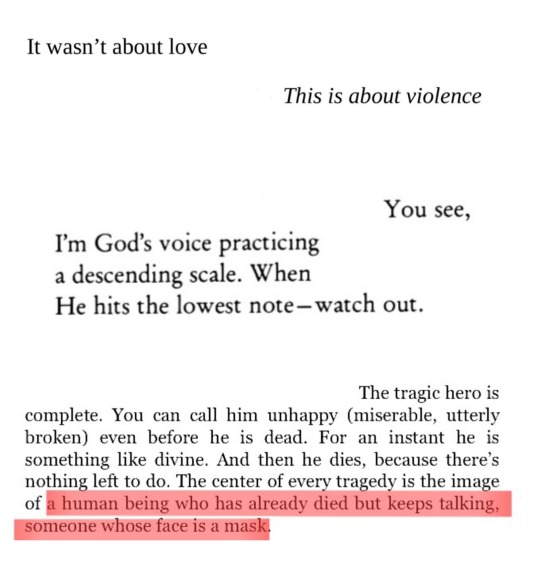
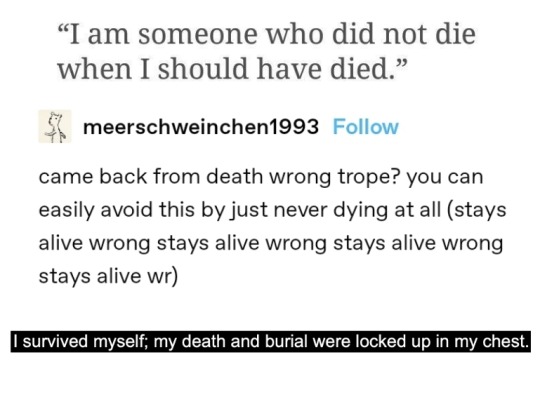
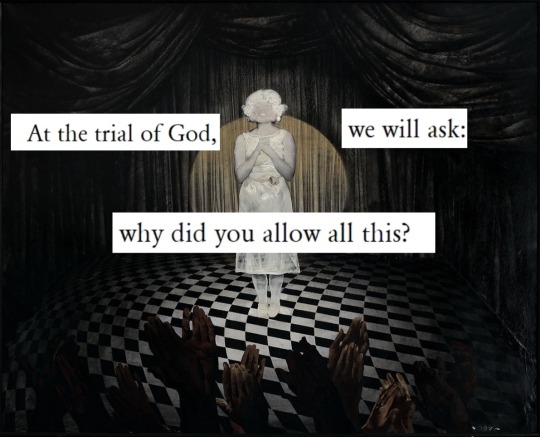






web weaving for a story I'm working on
the torn-up road, richard siken / the worm king's lullaby, richard siken / brute: poems, emily skaja / interview with a falling angel, gregory orr / grief lessons, anne carson / @/meerschweinchen1993 / moby dick, herman melville / a city like a guillotine shivers on its way to the neck, ilya kaminsky / in heaven everything is fine, ilya kreydun / blud, rachel mckibbens / bleed for us, thomas broomé / white is for witching, helen oyeyemi / orestes, euripides (tr. anne carson) / anecdote of the pig, tory adkisson / judas’ gift, adam phillips / this man was shot 0.9502 seconds ago, david lynch / wishbone, richard siken / pitchcanker / the old man and the sea, earnest hemingway / letters from medea, salma deera / before the court, aleksandr blok / sign of the times, harry styles / wolf in white van, john darnielle / the oersteia, aeschylus
1K notes
·
View notes
Text
Technology from 1870-1899 (For Encanto fic writers)
So, A mutual of mine @miracles-and-butterfliess pointed out that everyone (including me) tends to forget that Encanto was literally made when the triplets were born. Which is literally 1900 or 1901. Regardless, it was the very beginning of the 19th century so let me tell you about the technology/things they would/wouldn’t have. (And please keep in mind that most of these may or may not have been imported into Colombia yet.)
1870 - 1879
1872—A.M. Ward creates the first mail-order catalog. NO
1873—Joseph Glidden invented barbed wire. NO
1876—Alexander Graham Bell patents the telephone. NO
1876—Nicolaus August Otto invents the first practical four-stroke internal combustion engine. NO
1876—Melville Bissell patents the carpet sweeper. NO?
1878—Thomas Edison invents the cylinder phonograph (known then as the tin foil phonograph). MAYBE
1878—Eadweard Muybridge invents moving pictures. NO?
1878—Sir Joseph Wilson Swan invents the prototype for a practical electric lightbulb. YES?
1879—Thomas Edison invented the first commercially viable incandescent electric light bulb. NO?
1880 - 1889
1880—The British Perforated Paper Company debuts toilet paper. YES
1880—English inventor John Milne creates the modern seismograph. NO
1881—David Houston patents camera film in roll format. NO?
1884—Lewis Edson Waterman invents the first practical fountain pen. YES
1884—L. A. Thompson built and opened the first roller coaster in the United States at a site on Coney Island, New York. NO
1884—James Ritty invents a functional mechanical cash register. YES?
1884—Charles Parson patents the steam turbine. NO
1885—Karl Benz invented the first practical automobile powered by an internal-combustion engine. NO (even before Encanto, Alma’s town looked rural so I doubt the automobile reached them yet.)
1885—Gottlieb Daimler invented the first gas-engine motorcycle. NO
1886—John Pemberton introduces Coca-Cola. NO
1886—Gottlieb Daimler designs and builds the world's first four-wheeled automobile. NO
1887—Heinrich Hertz invents radar. NO
1887—Emile Berliner invented the gramophone. YES
1887—F.E. Muller and Adolph Fick invented the first wearable contact lenses. NO
1888—Nikola Tesla invents the alternating current motor and transformer. NO
1890 - 1899
1891—Jesse W. Reno invents the escalator. NO
1892—Rudolf Diesel invents the diesel-fueled internal combustion engine, which he patents six years later. NO
1892—Sir James Dewar invents the Dewar vacuum flask. NO
1893—W.L. Judson invents the zipper. NO (zippers didn’t become popular globally until a little bit later; buttons, ribbons/laces and whatever else were still the norm/in fashion for fastening and tying (which is still the case in some places today)
1895—Brothers Auguste and Louis Lumière invent a portable motion-picture camera that doubles as a film-processing unit and projector. The invention is called the Cinematographe and using it, the Lumières project the motion picture for an audience. NO?
1899—J.S. Thurman patents the motor-driven vacuum cleaner. NO (if you're running from being killed, the last thing you're going to bring is a vacuum cleaner)
I remember a post listing the sort of jobs there would be in Encanto but I forgot so I’ll just list the ones I know (let me know if I need to add anything.):
Seamstress/tailor
Embellisher
Field worker
Teacher (of any kind; music, dance, art, etc)
Woodworker - wood carver
Toy maker
Construction worker
Joining a Local band/ Orchestra - being apart of a choir
Carpenter
Metal worker
Jeweler (though I’m not sure if Jewelery of the diamond/gem kind is common in Encanto)
bladesmith/ knifemaker
Inventor? (Inventors should exist in Encanto by now…just one other genius besides Mirabel?)
I know some of these are very obvious but I’m just giving people options okay?
@miracles-and-butterflies you seem to know a lot more about this kind of stuff so if you have anything to add/take away or me to fix please let me know. I tried to search up “When was X invention imported into Colombia” and literally nothing of use comes up.
#camilo madrigal#bruno madrigal#mirabel madrigal#dolores madrigal#antonio madrigal#isabela madrigal#pepa madrigal#encanto 2021#encanto au#encanto fanfic
134 notes
·
View notes
Text
TBR TAKEDOWN: Week 11 (Aug 11)



TLDR: I have too many unread books, and I’m asking tumblr to help me downsize. Pick one or none, and comment if you can - a convincing sentence is worth a dozen votes! You’re also welcome to just choose the one that sounds the worst :D Book descriptions below the cut, see my pinned post for more info.
Voracious: A Hungry Reader Cooks Her Way through Great Books by Cara Nicoletti
As a young bookworm reading in her grandfather's butcher shop, Cara Nicoletti saw how books and food bring people to life. Now a butcher, cook, and talented writer, she serves up stories and recipes inspired by beloved books and the food that gives their characters depth and personality.
From the breakfast sausage in Laura Ingalls Wilder's Little House in the Big Woods to chocolate cupcakes with peppermint buttercream from Jonathan Franzen's The Corrections, these books and the tasty treats in them put her on the road to happiness.
Cooking through the books that changed her life, Nicoletti shares fifty recipes, including:
* The perfect soft-boiled egg in Jane Austen's Emma
* Grilled peaches with homemade ricotta in tribute to Joan Didion's "Goodbye to All That"
* New England clam chowder inspired by Herman Melville's Moby-Dick
* Fava bean and chicken liver mousse crostini (with a nice Chianti) after Thomas Harris's The Silence of the Lambs
* Brown butter crêpes from Gillian Flynn's Gone Girl
Beautifully illustrated, clever, and full of heart, Voracious will satisfy anyone who loves a fantastic meal with family and friends-or curling up with a great novel for dessert.
The Returning by Christine Hinwood
An engrossing epic tale with a cast of characters that will hijack your heart.
Cam Attling, having lost an arm, is the only one from his town of Kayforl to return after twelve years of war. All his fellow soldiers were slain, and suspicion surrounds him. When his betrothal to Graceful Fenister is called off and his role in the community questioned, Cam leaves to find the lord who maimed him but spared his life, seeking answers and a new place in the world.
But this is not just Cam’s story, it’s about all those whose fates entwine with his. Set in a medieval world that is entirely the author’s creation, this is an ingenious, exquisite story about what happens after the battle. When sisters, sons, friends, parents, and lovers are left to deal with the subtle aftermaths and unimagined repercussions of war.
The Sparrow by Mary Doria Russell
A visionary work that combines speculative fiction with deep philosophical inquiry, The Sparrow tells the story of a charismatic Jesuit priest and linguist, Emilio Sandoz, who leads a scientific mission entrusted with a profound task: to make first contact with intelligent extraterrestrial life. The mission begins in faith, hope, and beauty, but a series of small misunderstandings brings it to a catastrophic end.
#bec posts#tbr takedown#books#booklr#bookblr#poll#tbr#voracious#Cara Nicoletti#the returning#Christine hinwood#the sparrow#mary doria russell#book photo
32 notes
·
View notes
Text
Biographical movies and dramas about writers:
Tolkien (2019) - about JRR Tolkien
The Edge of Love (2008) - about Dylan Thomas
Set Fire to the Stars (2014) - about Dylan Thomas
Colette (2018) - about Sidonie-Gabrielle Colette
Wilde (1997) - about Oscar Wilde
The Trials of Oscar Wilde (1960) - about Oscar Wilde
My Salinger Year (2020) - about JD Salinger
Rebel in the Rye (2017) - about JD Salinger
Mary Shelley (2017) - about Mary Wollstonecraft Shelley
Gothic (1986) - about Mary Wollstonecraft Shelley
Shakespeare in Love (1998) - about William Shakespeare
Sylvia (2003) - about Sylvia Plath
Dickinson (2019-2021) - about Emily Dickinson
A Quiet Passion (2016) - about Emily Dickinson
Vita & Virginia (2019) - about Virginia Woolf
Becoming Jane (2008) - about Jane Austen
Miss Austen Regrets (2007) - about Jane Austen
Kafka (1991) - about Franz Kafka
Byron (2003) - about Lord Byron
Total Eclipse (1995) - about Paul Verlaine
Capote (2005) - about Truman Capote
Rowing with the Wind (1988) - about the Romantic Poets
Infamous (2006) - about Truman Capote
Quills (2000) - about Marquis de Sade
Neruda (2016) - about Pablo Neruda
Juana Inés (2016) - about Sor Juana Inés de la Cruz
Daphne (2007) - about Daphne du Maurier
Priest of Love (1981) - about DH Lawrence
Little Ashes (2008) - about Federico Garcia Lorca
Lope (2010) - about Lope de Vega
Howl (2010) - about Allen Ginsberg
The Last Station (2009) - about Leo Tolstoy
Young Goethe in Love (2010) - about Johann Goethe
Tom & Viv (1994) - about T.S. Eliot
Céleste (1980) - about Marcel Proust
Hemingway & Gellhorn (2012) - about Ernest Hemingway
Balzac: A Life of Passion (1999) - about Honore de Balzac
The Man Who Invented Christmas (2017) - about Charles Dickens
Shirley (2020) - about Shirley Jackson
Goodbye Christopher Robin (2017) - about Alan Alexander Milne
Heart Beat (1980) - about Jack Kerouac
In the Heart of the Sea (2015) - about Herman Melville
Notes: Not all of the films on this non-exhaustive list are entirely “about” the lives of their respective writers to a tee. I cannot vouch for the accuracy or quality of all of these movies. I’ve only seen about 75% of these films personally. And yes, I know this list is very Westernized – I’m working on it.
#if any kind person wants to make a letterboxd list with these#be my guest and send me the link as well por favor so i can save it#period drama#period film#films#movies#filmblr#film blog#movieblr#movie blog#letterboxd#mary shelley#oscar wilde#emily dickinson#jrr tolkien#poetry#poets#biopic#film recs#film recommendations#movie rec list#historical fiction#historical drama#dark academia#dark academia aesthetic#favourite movies#film student#jd salinger#dylan thomas#truman capote
59 notes
·
View notes
Note
Advice/hard truths for writers?
The best piece of practical advice I know is a classic from Hemingway (qtd. here):
The most important thing I’ve learned about writing is never write too much at a time… Never pump yourself dry. Leave a little for the next day. The main thing is to know when to stop. Don’t wait till you’ve written yourself out. When you’re still going good and you come to an interesting place and you know what’s going to happen next, that’s the time to stop. Then leave it alone and don’t think about it; let your subconscious mind do the work.
Also, especially if you're young, you should read more than you write. If you're serious about writing, you'll want to write more than you read when you get old; you need, then, to lay the important books as your foundation early. I like this passage from Samuel R. Delany's "Some Advice for the Intermediate and Advanced Creative Writing Student" (collected in both Shorter Views and About Writing):
You need to read Balzac, Stendhal, Flaubert, and Zola; you need to read Austen, Thackeray, the Brontes, Dickens, George Eliot, and Hardy; you need to read Hawthorne, Melville, James, Woolf, Joyce, and Faulkner; you need to read Tolstoy, Dostoyevsky, Turgenev, Goncherov, Gogol, Bely, Khlebnikov, and Flaubert; you need to read Stephen Crane, Mark Twain, Edward Dahlberg, John Steinbeck, Jean Rhys, Glenway Wescott, John O'Hara, James Gould Cozzens, Angus Wilson, Patrick White, Alexander Trocchi, Iris Murdoch, Graham Greene, Evelyn Waugh, Anthony Powell, Vladimir Nabokov; you need to read Nella Larsen, Knut Hamsun, Edwin Demby, Saul Bellow, Lawrence Durrell, John Updike, John Barth, Philip Roth, Coleman Dowell, William Gaddis, William Gass, Marguerite Young, Thomas Pynchon, Paul West, Bertha Harris, Melvin Dixon, Daryll Pinckney, Darryl Ponicsan, and John Keene, Jr.; you need to read Thomas M. Disch, Joanna Russ, Richard Powers, Carroll Maso, Edmund White, Jayne Ann Phillips, Robert Gluck, and Julian Barnes—you need to read them and a whole lot more; you need to read them not so that you will know what they have written about, but so that you can begin to absorb some of the more ambitious models for what the novel can be.
Note: I haven't read every single writer on that list; there are even three I've literally never heard of; I can think of others I'd recommend in place of some he's cited; but still, his general point—that you need to read the major and minor classics—is correct.
The best piece of general advice I know, and not only about writing, comes from Dr. Johnson, The Rambler #63:
The traveller that resolutely follows a rough and winding path, will sooner reach the end of his journey, than he that is always changing his direction, and wastes the hours of day-light in looking for smoother ground and shorter passages.
I've known too many young writers over the years who sabotaged themselves by overthinking and therefore never finishing or sharing their projects; this stems, I assume, from a lack of self-trust or, more grandly, trust in the universe (the Muses, God, etc.). But what professors always tell Ph.D. students about dissertations is also true of novels, stories, poems, plays, comic books, screenplays, etc: There are only two kinds of dissertations—finished and unfinished. Relatedly, this is the age of online—an age when 20th-century institutions are collapsing, and 21st-century ones have not yet been invented. Unless you have serious connections in New York or Iowa, publish your work yourself and don't bother with the gatekeepers.
Other than the above, I find most writing advice useless because over-generalized or else stemming from arbitrary culture-specific or field-specific biases, e.g., Orwell's extremely English and extremely journalistic strictures, not necessarily germane to the non-English or non-journalistic writer. "Don't use adverbs," they always say. Why the hell shouldn't I? It's absurd. "Show, don't tell," they insist. Fine for the aforementioned Orwell and Hemingway, but irrelevant to Edith Wharton and Thomas Mann. Freytag's Pyramid? Spare me. Every new book is a leap in the dark. Your project may be singular; you may need to make your own map as your traverse the unexplored territory.
Hard truths? There's one. I know it's a hard truth because I hesitate even to type it. It will insult our faith in egalitarianism and the rewards of earnest labor. And yet, I suspect the hard truth is this: ineffables like inspiration and genius count for a lot. If they didn't, if application were all it took, then everybody would write works of genius all day long. But even the greatest geniuses usually only got the gift of one or two all-time great work. This doesn't have to be a counsel of despair, though: you can always try to place yourself wherever you think lightning is likeliest to strike. That's what I do, anyway. Good luck!
773 notes
·
View notes
Text
My book recs
☆Mostly classics but a few more modern ones in there too!! Make sure to check warnings for any books you read ☆
1. The Virgin Suicides - Jeffrey Eugenides
2. 1984 - George Orwell
3. If We Were Villains - M.L Rio
4. Animal farm - George Orwell
5. Dracula - Bram Stoker
6. Frankenstein - Mary Shelley
7. Crime and Punishment - Fyodor Dostoevsky
8. Notes From the Underground - Fyodor Dostoevsky
9. Dante's Divine Comedy - Dante Alighieri
10. The Bell Jar - Sylvia Plath
11. Ariel - Sylvia Plath
12. The Collected Poems of Sylvia Plath - Sylvia Plath
13. The Unabridged Journals of Sylvia Plath - Sylvia Plath
14. Moby Dick - Herman Melville
15. To Kill a Mockingbird - Harper lee
16. Hamlet - William Shakespeare
17. Macbeth - William Shakespeare
18. The Brothers Karamazov - Fyodor Dostoevsky
19. The Devils - Fyodor Dostoevsky
20. The Idiot - Fyodor Dostoevsky
21. A Nervous Breakdown - Anton Chekhov
22. Nausea - Jean-Paul Sartre
23. The Wind in The Willows - Kenneth Grahame
24. Jane Eyre - Charlotte Brontë
25. Anna Karenina - Leo Tolstoy
26. The Handmaid's Tale - Margaret Atwood
27. Metamorphosis - Franz Kafka
28. Pride and Prejudice - Jane Austin
29. Great Expectations - Charles Dickens
30. Emma - Jane Austen
31. The Great Gatsby - F Scott Fitzgerald
32. One Hundred Years of Solitude - Gabriel Garcia Marquez
33. The Odyssey - Homer
34. To The Lighthouse - Virginia Woolf
35. The Count of Monte Cristo - Alexandre Dumas
36. Sense and Sensibility - Jane Austen
37. A Little Life - Hanya Yanagihara
38. The Trial - Franz kafka
39. My Year of Rest and Relaxation - Ottessa Moshfegh
40. Madame Bovary - Gustave Flaubert
41. The Goldfinch - Donna Tartt
42. Romeo and Juliet - William Shakespeare
43. Fahrenheit 451 - Ray Bradbury
44. Selected Stories - Alice Munro
45. American Psycho - Bret Easton Ellis
46. Normal People - Sally Rooney
47. Existentialism is a Humanism - Jean-Paul Sartre
48. Brave New World - Aldous Huxley
49. Persuasion - Jane Austen
50. Les Miserables - Victor Hugo
51. The Death of The Heart - Elizabeth Bowen
52. The Iliad - Homer
53. One Flew Over the Cuckoo’s Nest - Ken Kesey
54. The Catcher in the Rye - J.D Salinger
55. The Outsiders - S.E Hinton
56. The Chrysalids - John Wyndham
57. Catch 22 - Joseph Heller
58. Middlemarch - George Eliot
59. Tess of the D'Urbervilles - Thomas Hardy
60. Meditations - Marcus Aurelius
61. Beyond Good and Evil - Friedrich Nietzsche
62. The Stranger - Albert Camus
63. The Republic - Plato
64. Letters From a Stoic - Seneca
65. Man’s Search For Meaning - Viktor E. Frankl
66. The Myth of Sisyphus - Albert Camus
67. Bunny - Mona Awad
68. Belladonna - Anbara Salam
69. The Yellow Wallpaper - Charlotte Perkins Gilman
70. My Life Had Stood a Loaded Gun - Emily Dickinson
71. How We Weep and Laugh at the Same Thing - Michel de Montaigne
72. The Telltale Heart - Edgar Allen Poe
73. The Death of Ivan Ilych - Leo Tolstoy
74. Come Close - Sappho
75. The Fall of Icarus - Ovid
76. Tender Is the Flesh - Agustina Bazterrica
77. Cassandra - Christa Wolf
78. Forbidden Notebook - Alba de Céspedes
79. Girl, Interrupted - Susanna Kaysen
80. Carrie - Stephen King
81. Mrs. S - K Patrick
82. Sunburn - Chloe Michelle Howarth
83. Perfume - Patrick Suskind
84. After Dark - Haruki Murakami
85. Kafka on the Shore - Haruki Murakami
86. No Longer Human - Osamu Dazai
87. Wednesday's Child - Yiyun Li
88. My Husband - Maud Ventura
89. All Down Darkness Wide - Sean Hewitt
90. Norwegian Wood - Haruki Murakami
91. The Waves - Virginia Woolf
92. The Talented Mr Ripley - Patricia Highsmith
93. We Have Always Lived in the Castle - Shirley Jackson
94. For Whom the Bell Tolls - Ernest Hemingway
95. Journey Into the Past - Stefan Zweig
96. Outline - Rachel Cusk
97. Chess Story - Stephen Zweig
98. Diary of a Madman - Nikolai Gogol
99. A Very Easy Death - Simone De Beauvoir
100. A Writer's Diary - Virginia Woolf
Enjoy!!
#book recommendations#books#english literature#literature#classic#classics#dark academia#chaotic academia#bookblr
17 notes
·
View notes
Text

The Flower Clock. A Selection of poems from the catalogs of the Asphodel Book Shop 1963-2003, Edited by Tom Kryss, Black Rabbit Press, Charlestown, OH, 2008, Edition of 75 [room 3o2 books, Ottawa]
Contributors: Lawrence Barth, Art Beck, Richard Blevins, Basil Bunting, Jim Burns, Ronald Caplan, Jim Daniels, Emily Dickinson, Edward Dorn, Ian Frazier, Marc Harshman, Weldon Kees, Dean H.Keller, Tom Kryss, Al Lawless, Jim Lowell, Tessa Alwyn Lowell, Hugh MacDiarmid, Thomas McGrath, Herman Melville, William Moore, bpNichol, Lorine Niedecker, Evangeline Paterson, Will Petersen, Carl Rakosi, Richard Rbenstein, Robert J. Sigmund, Raymond Souster, Hent Taylor, B.Traven, James Wrigh
Cover Design: Tom Kryss
#graphic design#art#poetry#drawing#book#cover#book cover#tom kryss#black rabbit press#room 3o2 books#2000s
18 notes
·
View notes
Text
From this day forward...
Mark Twain
Charles Dickens
Victor Hugo
William Shakespeare
Ernest Hemmingway
John Steinbeck
Herman Melville
Thomas Mallory
Ben Jonson
John Milton
Alfred Lord Tennison
Walter Scott
William Wordsworth
Edgar Allen Poe
H.R James
The Brothers Grimm
Charles Perrault
John Donne
Johann Wolfgang von Goethe
Friedrich Schiller
Christopher Marlow
Edmund Spencer
Miguel Cervantes
Homer
Ovid
Virgil
Anton Chekhov
Ian Fleming
Leo Tolstoy
J.M Barrie
Lewis Carrol
C.S Lewis
J.R.R Tolkien
Dante Alighieri
...ARE ALL OFFICALLY CANCELLED.
16 notes
·
View notes